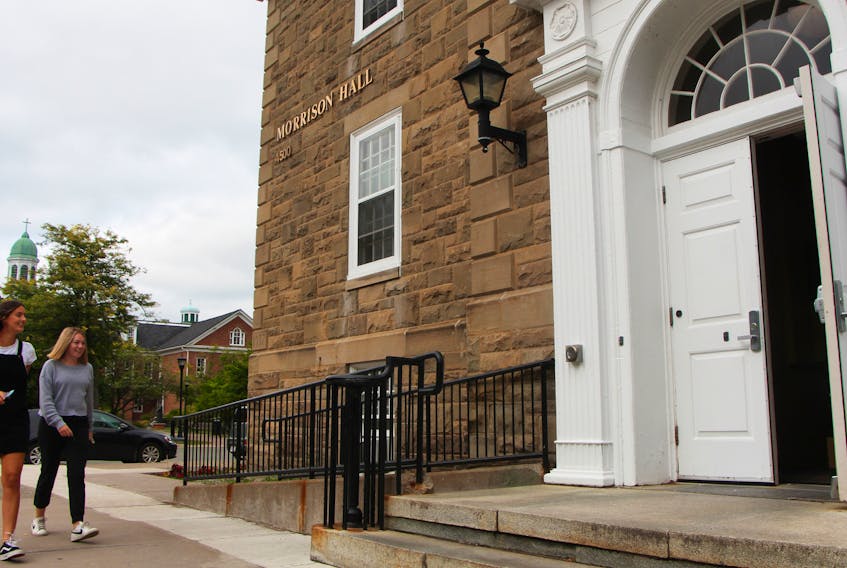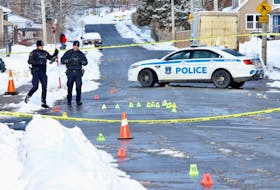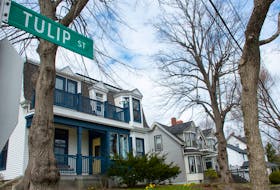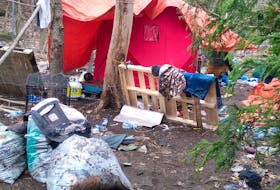An infectious disease modeller warns that allowing university students to leave the Atlantic bubble for Christmas break can be expected to cause outbreaks upon their return.
“My advice to Nova Scotia would be not to reopen campuses (after Christmas break),” said Robert Smith?, a University of Ottawa mathematician with an unusually spelled last name.
“At the University of Ottawa we shut down everything — except some labs. Pandemic preparedness 101 is you close down schools.”
St. Francis Xavier and Acadia universities both have unveiled plans to allow their students to head home for the Christmas break, even if those homes are outside the Maritime provinces.
University Sainte-Anne, meanwhile, is asking its out-of-bubble students to remain in the province for the holiday. The Church Point university is offering free accomodations to those students over Christmas.
When a few thousand university students came into Nova Scotia from outside the bubble in September, there were about 5,000 active cases of COVID-19 nationwide. According to Health Canada, there were 25,994 cases of the disease on Oct. 26.
And that number is going up quickly.
“My prediction is that this wave is going to be big, it is going to be worse and we will see something like three times the wave we saw in April,” said Smith?.
“I think we are just at the beginning of this.”
For reference, active cases peaked at about 30,000 in April.
Students and staff at St. F.X. are participating in town halls this week where they will learn about the university’s plan for the return to school in January.
Students will be free to head home after exams wrap up on Dec. 14. Out-of-bubble students will be required to return on Jan. 4 or Jan. 5 to begin their two-week quarantine, whether they live on or off campus. Students who live on campus but haven’t travelled outside the bubble will not be allowed to return to their dorms until the first group completes their 14-day quarantine on Jan. 19.
Halfway through that quarantine, all classes will begin online.
In the following weeks, in-person classes will be allowed to resume.
“I think the behavior we have seen so far in the first (semester) isolation period would hopefully offer some comfort to anyone in the town,” said Siobhan Lacey, vice-president academic for St. F.X.’s student union.
Only one case of COVID-19 was brought into this province by an out-of-bubble student for the fall semester. But there are five times as many cases now as there were then and if Smith?’s predictions for the second wave hold true, there could be 15 times as many active cases by January.
Meanwhile, Nova Scotia announced Tuesday that it will begin welcoming back international post-secondary students effective Nov. 3.
The province’s universities and language schools have been added to a list of those authorized by Citizenship and Immigration Canada to bring in international students.
"International students play a vital role in Nova Scotia's social and economic well-being," said Labour and Advanced Education Minister Lena Metlege Diab in a news release announcing restrictions being lifted.
"We are thrilled to begin welcoming them to our post-secondary institutions again, knowing that we have the necessary protocols in place to keep both students and communities safe."
Those protocols include a 14-day quarantine period, with responsibility for arranging/confirming transport from the airport, accomodations and meals held by the school.
Beyond the potential public health implications, this province’s post-secondary institutions still haven’t been able to arrange liability insurance for COVID-19 related claims.
The Canadian University Reciprocal Insurance Exchange advised its members earlier this year that it wouldn’t be able to provide the coverage starting in the new year.
Smith? has been working on models for how the potential vaccines in the research pipeline could affect viral spread and ultimately our ability to function as a society.
He expects them to “not be perfect” and not to start to have significant effects on viral spread until 2022.
“We’re looking at a whole year of lockdowns and outbreaks where we play whack-a-mole with outbreaks,” said Smith?.
“But we can do it. The tools are there and the examples of countries and provinces that have been successful, it’s just a matter of willingness to use them.”









